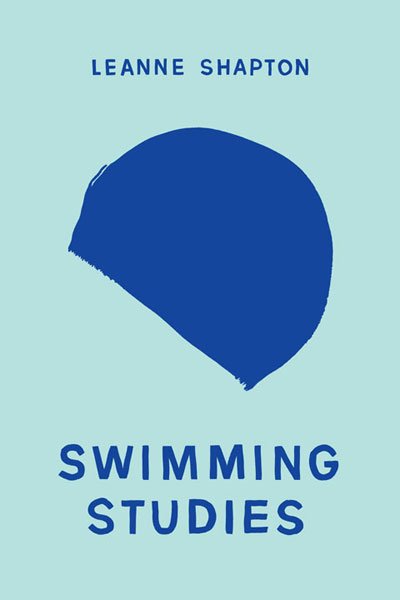In the weeks leading up to the February 28 announcement of the 2012 NBCC award winners, Critical Mass highlights the thirty finalists. Today in our series, NBCC board member Elizabeth Taylor offers an appreciation of autobiography finalist Swimming Studies (Blue Rider Press) by Leanne Shapton.
 In this medley of a memoir, Leanne Shapton captures the aesthetic of swimming in distinctively elegant, spare language and watercolor images and photographs.
In this medley of a memoir, Leanne Shapton captures the aesthetic of swimming in distinctively elegant, spare language and watercolor images and photographs.
She wasn’t the best, but she swam, trained, competed, ate, traveled and showered with the best in the country. In her world, pretty good meant the Olympic Trials in 1988 and 1992.
In language that is impressionistic and style that rejects chronological narrative, Leanne Shapton’s Swimming Studies is both paean to and rejection of the lap lane. It’s about the capacity for imagination when the rhythm of the stroke takes over. It’s about growing up in Ontario, imagining life beyond the confines of the pool and illustrating how creativity and art can emerge from constraint of single-minded pursuit.
While traditional memoirs rely on the accretion of detail, Shapton deftly renders refined and selected images. She writes of protein bars, frigid early mornings, mechanics of turns and the scent of wet team towels. As a breaststroke expert, she had knee problems and was advised to ice regularly and take eight aspirin a day. She recalls that after races and workouts, she would sit in the bleachers with a “styrofoam cup of frozen water, rolling the flat ice against the inside of my knees until they turned bright pink and lost all feeling.”
Shapton creates a world where practice is supposed to make perfect and where determination and hard work are more important than natural talent. &ldquldquo;Artistic discipline and athletic discipline are kissing cousins,” writes Shapton, “they require the same thing, an unspecial practice: tedious and pitch-black invisible, private as guts and always sacred.”
She still dreams of races, coaches and competitors, and is drawn to swimming pools, no matter how dank or murky. She prefers the confines of pools to unpredictability of open water. Spooked by the open-ended horizon, she understands that her dread of sharks resides in her fear of loneliness, vulnerability and violence. She calls her recreational laps phantoms of her competitive races. And yet, her character was formed in those pools in a way that is instinctive less than intellectual. “When I swim now,” she writes. “I step into the water as though absentmindedly touching a scar.”
For Shapton, swimming is elusive, as elemental as water, what we cannot live within or without. With a backward glance, she ruefully writes: “After twenty years I still search for the dumb focus I had as a competitive swimmer.”
Links:
New York Times review
Los Angeles Times review
Guardian review

